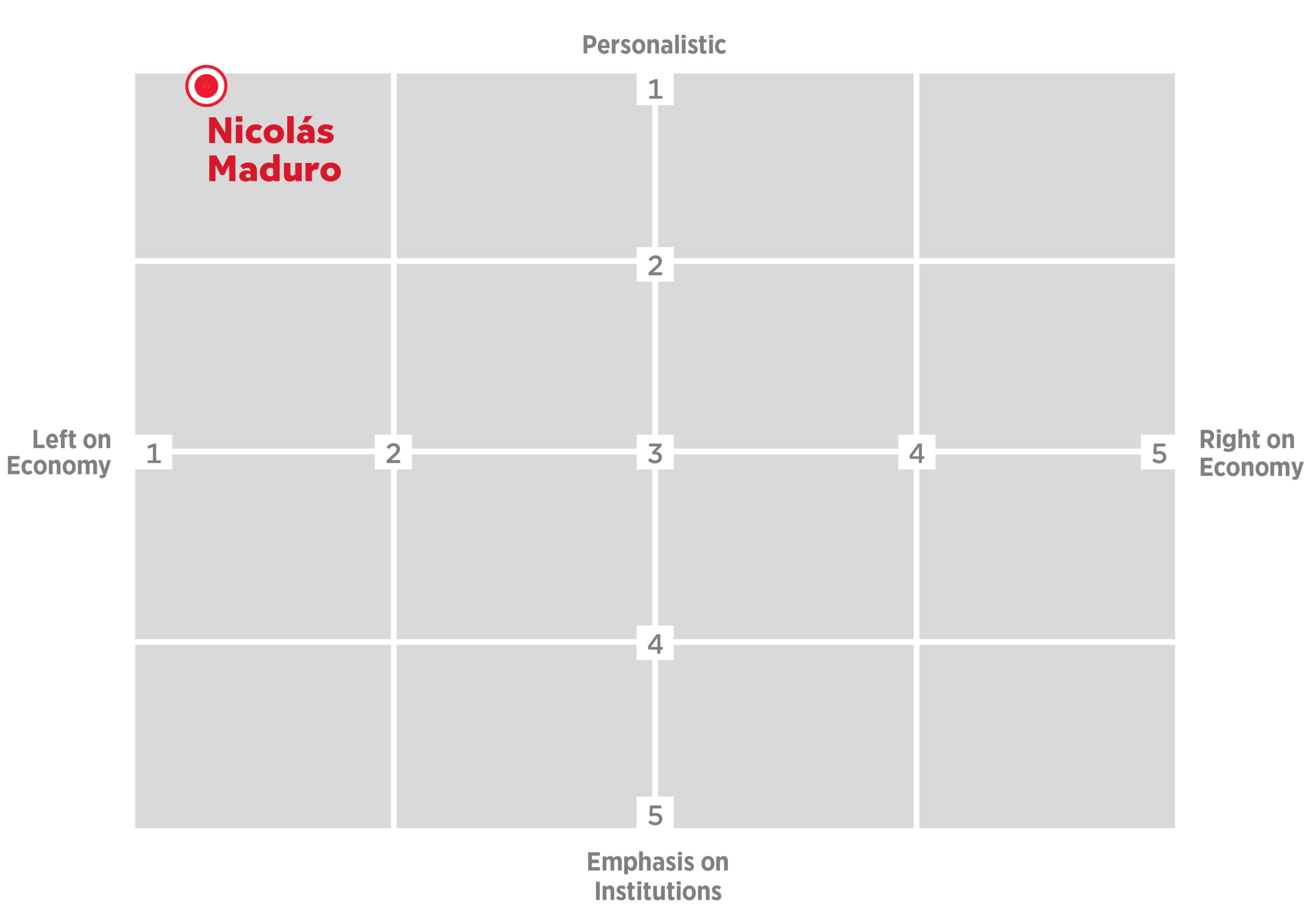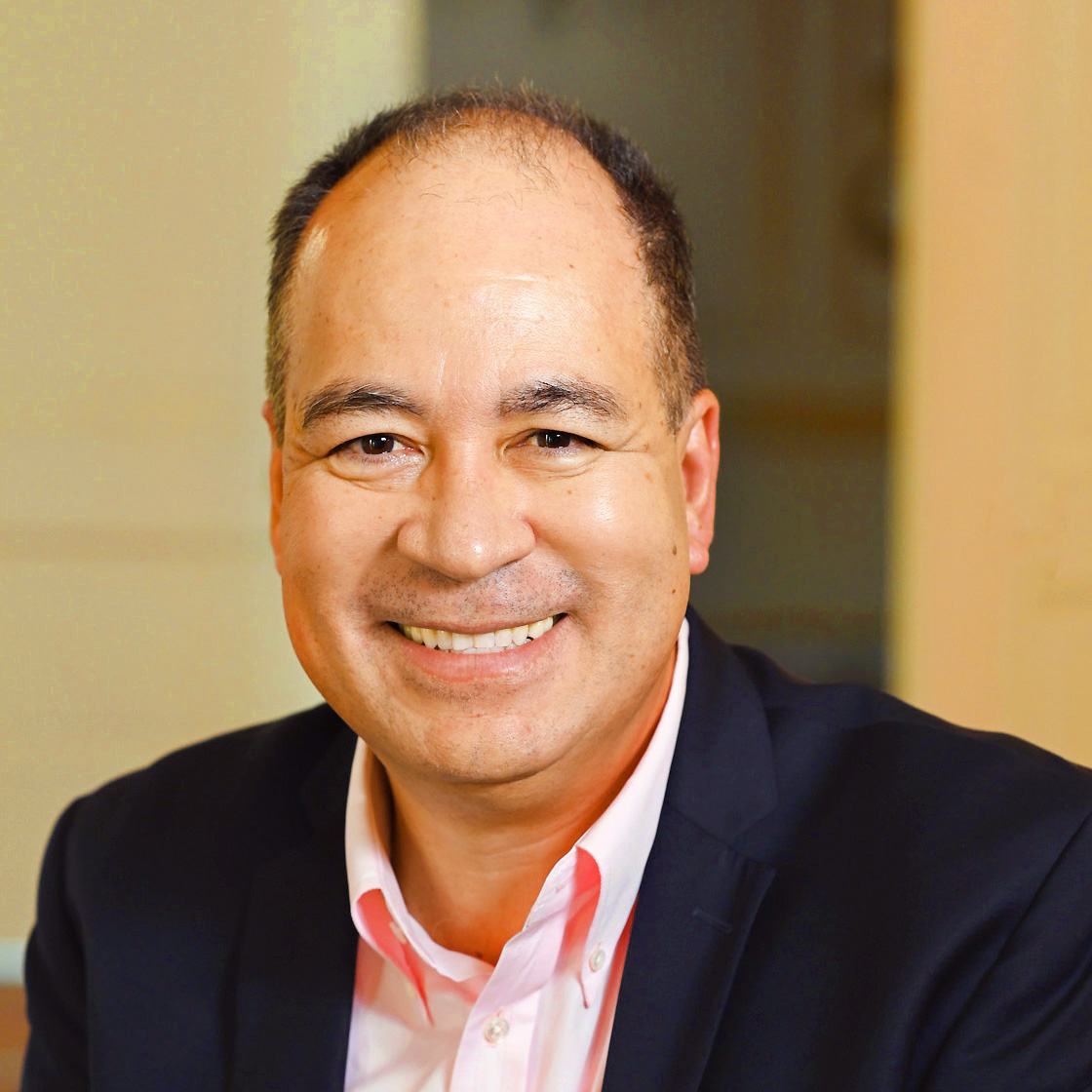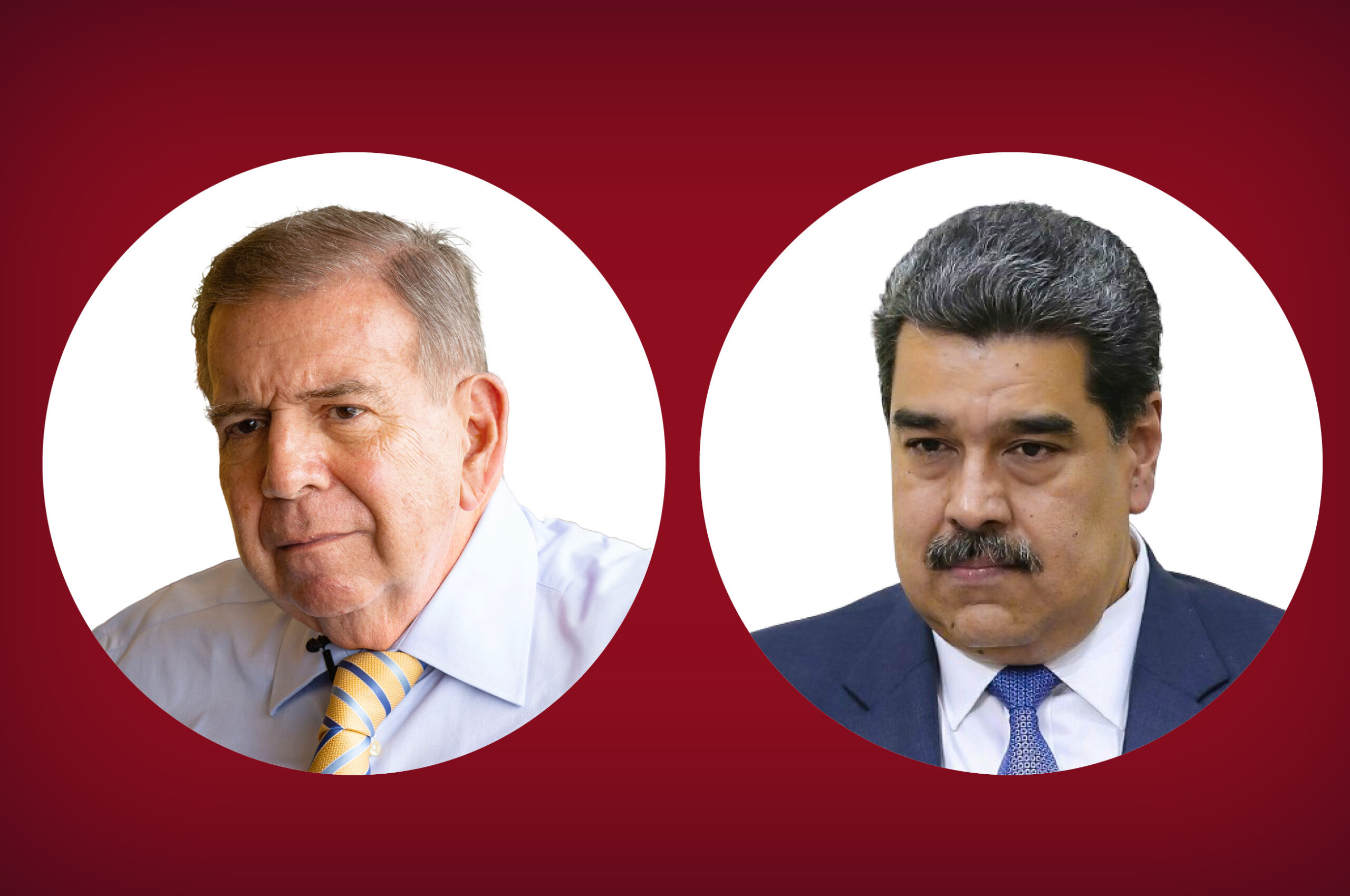This article is adapted from AQ’s special report on Latin America’s election super-cycle
This page was last updated on July 18
Venezuela’s dictatorship is expected to hold a single-round election for president and vice president on July 28. Most observers do not expect the vote to be free or fair. The ruling PSUV party officially named President Nicolás Maduro as its candidate on January 25. After the nation’s Supreme Court barred leading opposition figure María Corina Machado from participating, Venezuela’s opposition coalition backed Edmundo González Urrutia as its candidate. We will occasionally update this page to reflect developments in the campaigns.
AQ also asked a dozen nonpartisan experts on Venezuela to help us identify where each candidate stands on two spectrums: left versus right on economic matters, and a more personalistic leadership style versus an emphasis on institutions. We’ve published the average response, with a caveat: Platforms evolve, and so do candidates.
This piece is part of AQ’s ongoing coverage of upcoming elections.
Edmundo González Urrutia | Nicolás Maduro
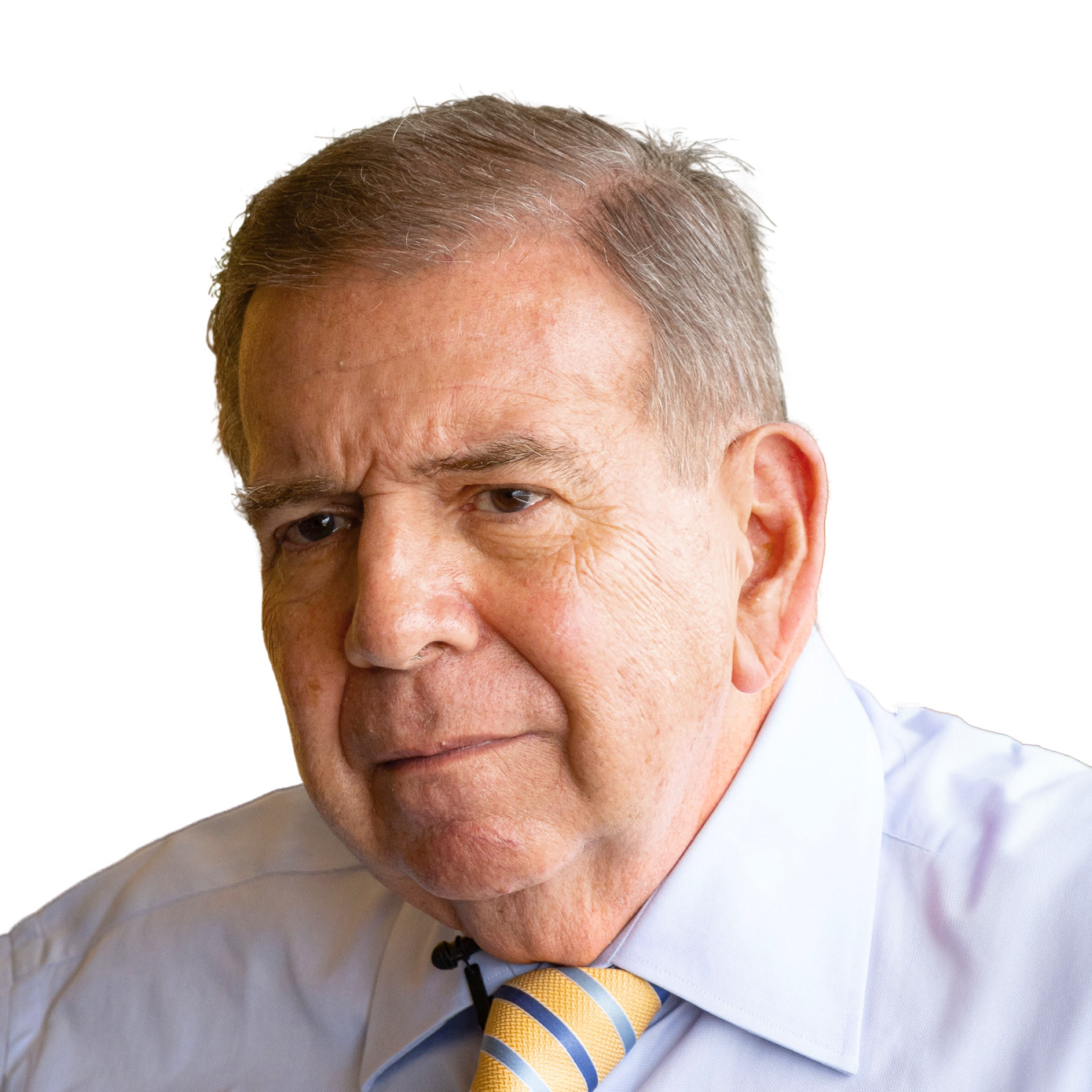
Edmundo González Urrutia
74, former diplomat
Plataforma Unitaria
“We aim to have a Venezuela for all, where no one will fear to be prosecuted for their ideas.”
HOW HE GOT HERE
A retired career diplomat, González Urrutia emerged as Venezuela’s unlikely opposition candidate in April, after the government barred María Corina Machado and her proxy candidate. Machado had overwhelmingly won opposition primaries held last October. González Urrutia is running under a 10-party coalition.
WHY HE MIGHT WIN
In a fair election, voters are likely to repudiate years of authoritarian rule and severe economic mismanagement. A July poll from the Centro de Estudios Políticos y de Gobierno at the Universidad Católica Andrés Bello and pollster Delphos showed González Urrutia ahead of Maduro, 59.1% to 24.6%. Machado and other popular opposition leaders are urging supporters to vote for him. The Maduro government is likely to hold clean elections and respect the result only if it is offered a broad amnesty. González Urrutia’s reputation as a consensus seeker may help reassure Maduro and other government figures that true amnesty is on the table.
WHY HE MIGHT LOSE
González Urrutia has very low name recognition, and he will only begin his formal campaign in late May. Voters have little idea of where he stands on most policy issues. The Maduro government could at any time upend the race by disqualifying him or taking other actions to ensure its survival.
WHO SUPPORTS HIM
González Urrutia is drawing endorsements from across Venezuela’s political spectrum, including some wings of the traditional chavista base, with his goal of unifying the country. Voters from what remains of Venezuela’s middle class, and a sizable diaspora, are also expected to favor him.
WHAT HE WOULD DO
In the short term, González Urrutia will pursue a democratic transition and economic recovery. He’ll try to stabilize the nation’s currency, tame runaway inflation, and free political prisoners. González Urrutia is expected to establish formal relations with the U.S. and multilateral organizations and re-engage in dialogue with the European Union and the UN.
IDEOLOGY
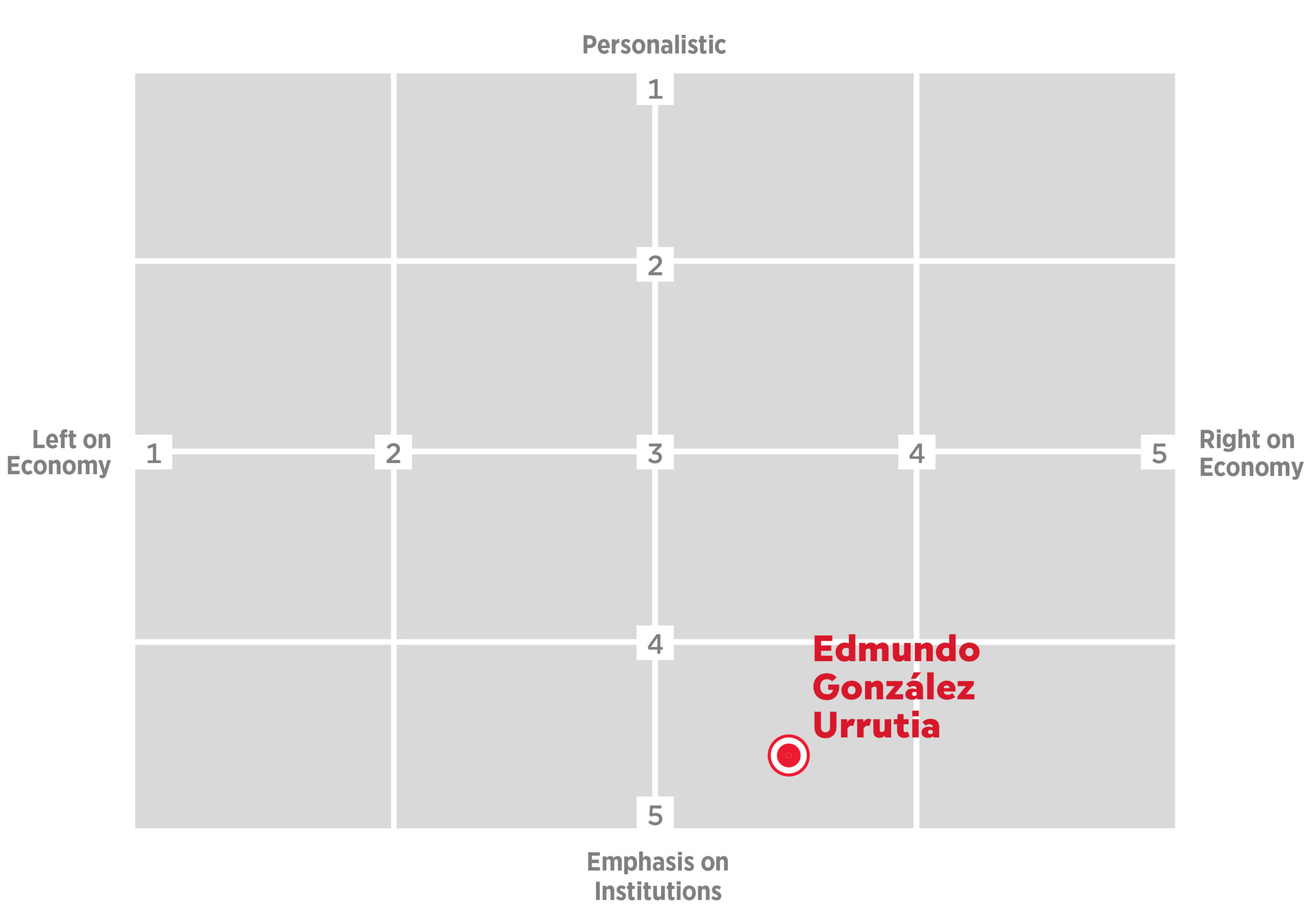
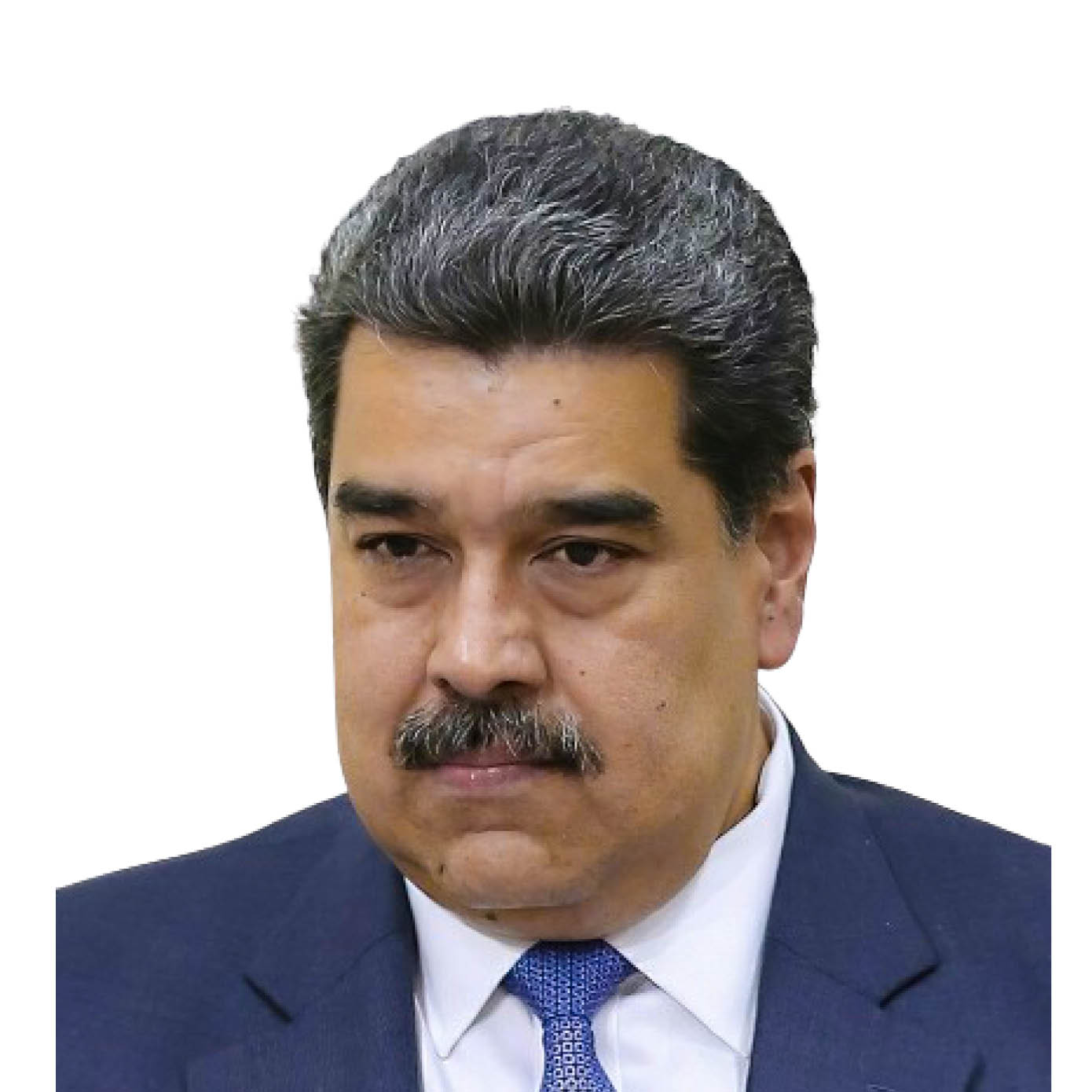
Nicolás Maduro
61, president
Partido Socialista Unido de Venezuela (PSUV)
“The presidential elections will come, the people will vote, the people will choose and, well… we’ll move on.”
HOW HE GOT HERE
A dictator who assumed power in March 2013, Maduro formally seeks a third term that would extend his rule beyond that of his predecessor, Hugo Chávez. Maduro won his second term in an undemocratic election in 2018. Maduro’s rule has been marred by human rights abuses, political prosecution, corruption and the erosion of institutions. According to the IMF, Venezuela’s gross domestic product declined by more than 75% between 2013 and 2021, the most for a country not at war in the last 50 years.
WHY HE MIGHT WIN
Virtually no one expects the election to be free or fair. Maduro controls the government apparatus, including critical institutions such as the electoral authority, the Supreme Court, the entire judicial system and the army. As of publication, the government-controlled courts had barred the leading opposition candidate, María Corina Machado, from running.
WHY HE MIGHT LOSE
Polls suggest Maduro is highly unpopular. Some observers draw comparisons to Chile’s 1988 plebiscite, when Augusto Pinochet sought popular validation for his dictatorship but lost control of the process, lost the vote, and ultimately allowed a transition to democracy. However, such a scenario in Venezuela is seen as extremely unlikely.
WHO SUPPORTS HIM
Maduro still retains some support from low-income segments of the population who receive subsidies and benefits from social programs, although their value has eroded due to rampant inflation and economic mismanagement.
WHAT HE WOULD DO
Maduro would likely strengthen relations with Russia, China, Iran, and certain Latin American nations such as Cuba and Colombia, while continuing different iterations of populist policies to stay in power.
IDEOLOGY
